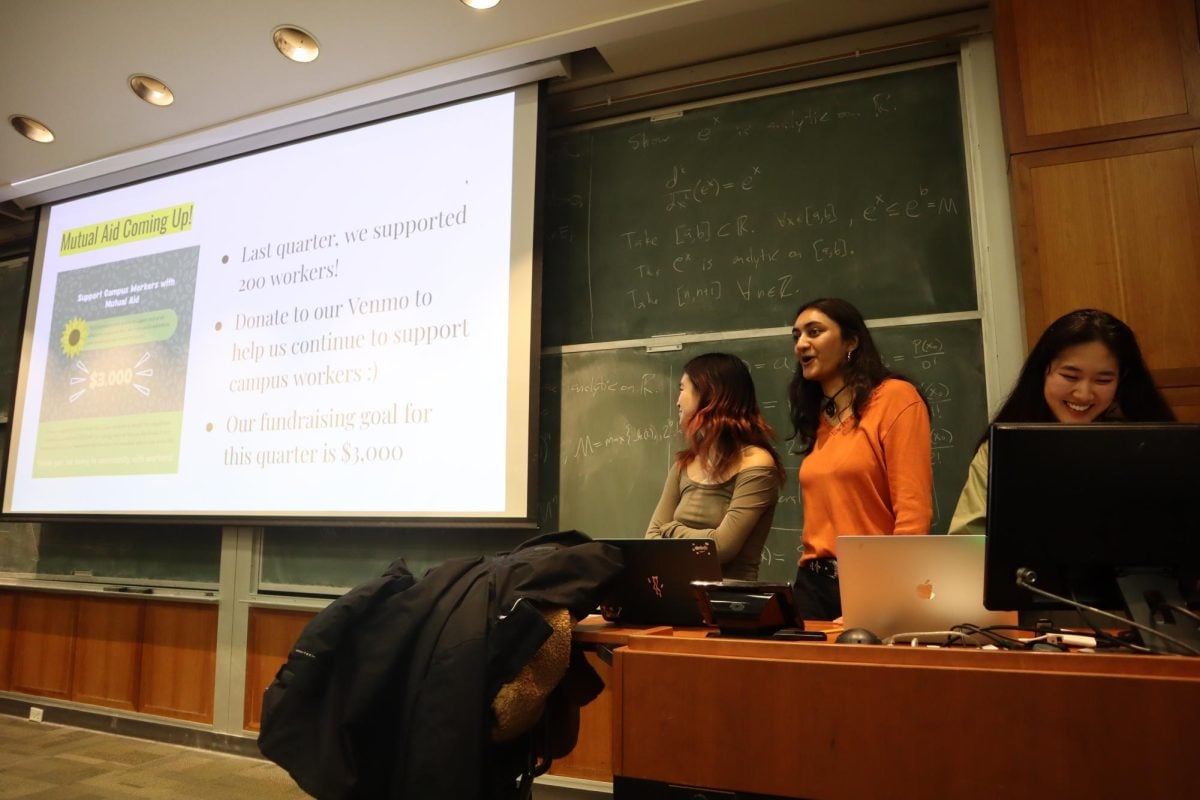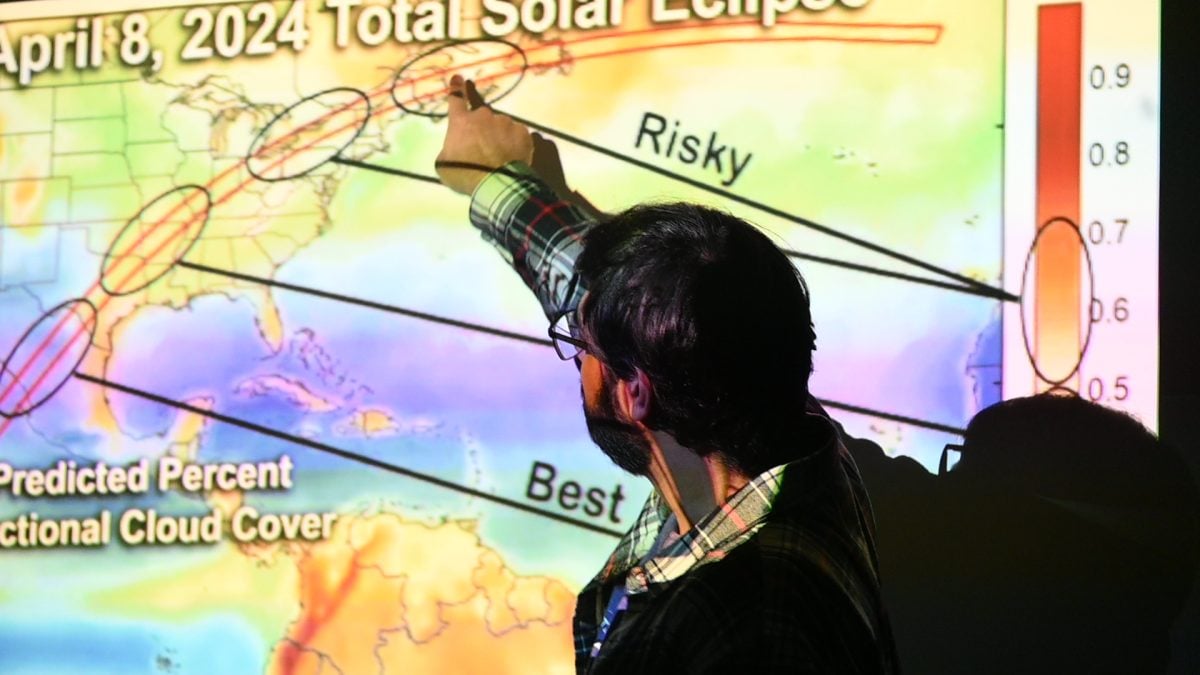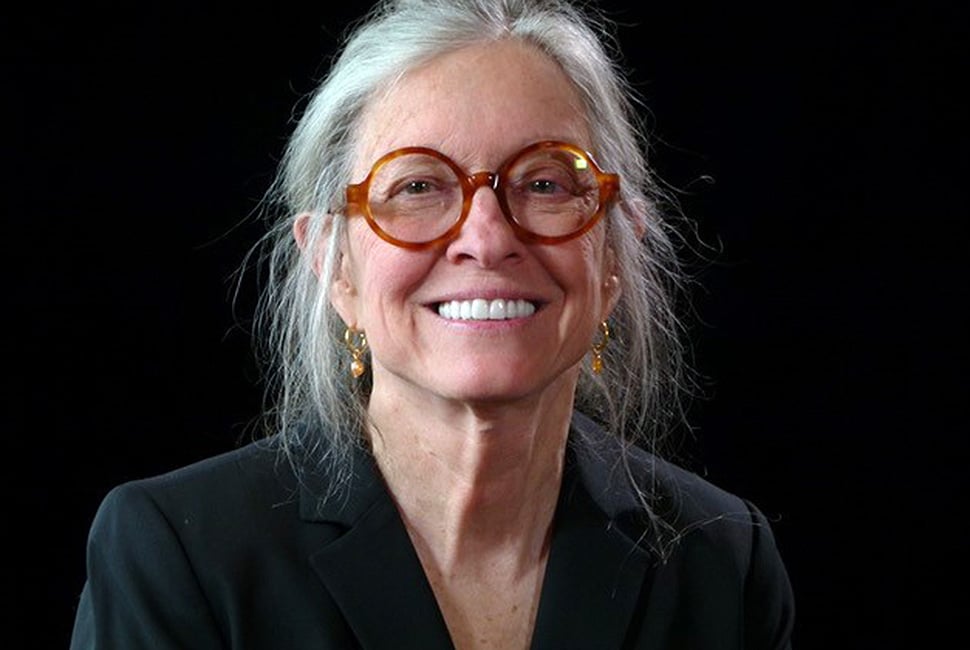Students gathered in Annenberg Hall Friday to learn about the history of labor movements at Northwestern from Students Organizing for Labor Rights.
The event marked the last day of Disorientation Week, a series of teach-ins and activities hosted by various student activist organizations intended to help students learn about existing systems at the University and the history of movements to dismantle them.
SOLR is a coalition of undergraduate students aiming to support campus workers through campaigns, mutual aid distributions and direct communication with the University. The club’s advocacy goals include higher wages and better working conditions for workers.
“The goal of SOLR is to not have to exist,” SESP sophomore and SOLR member Jade Chi said. “In an ideal world, workers would be treated well, and we wouldn’t have to advocate for them.”
The organization was founded in 2018 when NU switched food service providers from Sodexo and Aramark to Compass Group, a company with an alleged history of overworking, underpaying and subjecting employees to hostile working conditions, according to SOLR members. The change required workers to go through a reapplication process to ensure continued employment.
To ensure a smooth transition for all dining workers, SOLR members petitioned, canvassed and met with University administration and Compass representatives, members said.
Event organizers said the history of labor organizing at NU did not start with the formation of SOLR, though. In 2009, students and University employees launched the Living Wage Campaign, a movement demanding NU to raise its hourly wage for subcontracted workers.
“It’s kind of been hard to keep knowledge and information being passed down by generations of students,” SESP junior and SOLR member Hana-Lei Ji said. “It’s really important to … look back at the previous goals that have been set and demands that haven’t been met, and continue those demands now.”
In 2010, to continue the fight for a living wage for campus workers, more than 370 NU community members demonstrated outside the office of then-University President Morton Schapiro. After the protest drew little reaction from NU, about 50 subcontracted workers built a “shanty town” consisting of three tents in front of the Rebecca Crown Center.
Within a month, subcontracted workers got their first tangible victory when the University granted them “community benefits,” including access to Wildcard privileges.
“Workers have shown a lot of leadership,” SESP sophomore and SOLR member Anusha Kumar said. “It’s really important to be aware of that and center their voices in the work that we do.”
Subcontracted food service workers finally settled on a contract in September 2011, which included free and reduced-cost health care and a $10 minimum wage, raised from the Illinois minimum wage of $8 when the campaign began. The contract also incrementally increased over the span of a four-year contract to translate into a “living wage for all workers.”
Ji said she was surprised by what she learned from her research for the teach-in. She said there can be a misconception among campus activists that workers have not always been an active force in movement and advocacy efforts.
“Workers have taken a lot of agency in … trying to organize and create protests and spread awareness about the conditions that they face,” she said. “Students have always been around to support that.”
Presenters provided snacks and asked attendees to fill out an onboarding form at the end of the event. Members said they hope more students can get involved with campus labor movements. The group meets weekly and is non-hierarchical, allowing anyone to get involved in planning processes.
In addition to signing petitions and participating in marches, members encouraged students to make an effort to build relationships with workers on campus by starting conversations.
“There shouldn’t be a big distance between students and workers, because workers are constantly supporting on-campus students,” Kumar said. “There are daily efforts and ways to support workers without having to do really big things.”
Email: [email protected]
X: @joyycee_li
Related Stories:
— Students Organizing for Labor Rights marches for Northwestern maintenance staff
— SOLR hosts May Day event to celebrate campus workers, spotlight intersectional activism efforts















